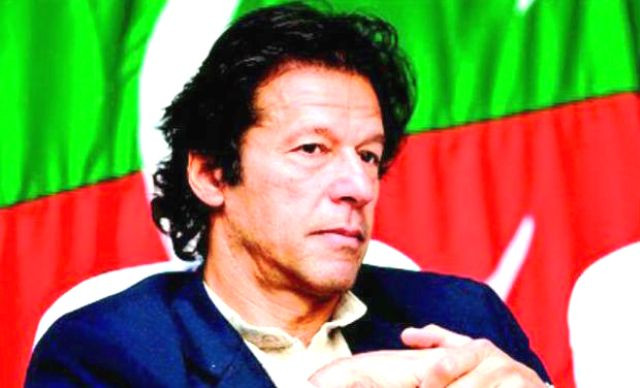Is there any similarity between the anti-corruption movement that India witnessed couple of years ago and what Imran Khan is currently attempting to do in Pakistan? Pakistan Tehreek-e-Insaf (PTI) or its leader, Imran Khan, would like the world to believe that the upheaval in the Islamic state is a spontaneous overflow of the pent up feelings of the people of Pakistan. He would like his countrymen and the world to believe that what he is doing is in the larger interest of the country and democracy.
Let us analyse how true that is.
The similarity between Khan and his Indian counterpart lies in the rigidity of their stand; the inflexibility and the high moral ground they take on the issues. But it ends there.
Can we say that PTI has captured the imagination of the people of the country by marching to Islamabad? Has it galvanised the masses, media and people who are at the periphery of politics?
If one goes by news reports and reactions on social media, the PTI and Pakistan Awami Tehreek (PAT) have not only brought the country to a standstill, but are also unleashing reactionary forces which are not in the long term interests of the democratic polity of the country. The workers of PTI are using democratic rights to protest, but they are in no way strengthening democracy. Imran Khan may like to call his movement ‘Arab Spring’, but in Pakistan there is no despotic ruler to fight against, there is no dictatorship. What Islamabad needs to wage battle against is the army’s domination in democracy.
What is happening is contrary to the democratic interests of the country; protestors are not willing to listen to the democratically elected government or negotiate with the ruling party. Khan and Qadri seem to want a revolution in the country not to establish people’s rule, but to bring the army at the helm of affairs in Islamabad. And the government seeking help from the army in panic has further undermined its own authority and superiority.
This is for the people of Pakistan to decide; whether any movement which undermines democracy is good for the larger wellbeing of the nation.
Sitting in India and watching the developments unfold in the neighbourhood, it is highly discomforting. Can we even think of asking the Indian Army to intervene in a domestic political crisis? The very idea militates against the democratic instinct that we have inherited. But this is what is happening in Pakistan. The army is actively involved in sorting out the political crisis in Islamabad. The elected representative has become some sort of a rubber stamp. The voice of the parliament and the prime minister of the country are lost in the din.
Many in India tend to believe that Khan and Qadri are proxies of the army and they are acting at its behest. Unlike in the past, the all-powerful military does not seem to be keen to usurp power but are also not shy of political intervention. This undermines democracy in the country severely. Who will listen to the prime minister of the country if people lose trust in that institution? What authority will the elected government have in dealing with the outside world?
Today in India, a group of people and media are openly advocating the need to bypass the PM of Pakistan and engage with the army directly on the contentious issues affecting both the countries. The recent developments inside the Islamic Republic of Pakistan further reinforce that perception.
Sooner or later, the political chaos in Pakistan will come to an end. But who will be the real winner? We all know the answer. The protest in Islamabad is not an urge for democratic reforms and strengthening the institutions of democracy, it is to give primacy to the army. The final loser in the whole crisis is the government chosen by democratic mandate.
Pakistan has been under army rule for a major part of its existence and we all know the consequences. The military power might have succeeded to an extent to protect the border, but it has internally wounded the nation and it’s bleeding from all sides.
As an abiding friend of Pakistan, it feels really sad to see the state of affairs there and the desperation of the people to come out of this situation. It feels sad to see a vocal section of India exhibiting glee at the crisis in the neighbourhood; they find justification in their hatred for Islam and the idea of Pakistan as a nation.
One thing is clear, the former cricketer and the expatriate Islamic preacher are not friends of Pakistan. They represent what is rotten in Pakistan; they are not the modern voice but polemics, who use their privileged positions to serve their personal interests rather than the cause of masses.
Khan at the prime of his cricketing career was the darling of masses, both in India and Pakistan; he was the face of hope. Today, his desperation for power distances him from the masses. He is no longer a progressive face that he was known to be, he now represents reactionary elements in a volatile nation.
The anti-corruption movement in India brought new generations of Indians face to face with a democratic struggle. A new voice entered politics and tried to define democracy anew. But the current movement in Pakistan is anti-democratic in spirit and thought, and is working to strengthen those forces which find democracy to be the bane of their existence, an anathema to their survival. It fuels further scepticism about the project of democracy in the Islamic world.
As an Indian, I feel sad.
An Indian perspective: How 'democratic' is Pakistan?
One thing is clear, the former cricketer and the expatriate Islamic preacher are not friends of Pakistan.



COMMENTS
Comments are moderated and generally will be posted if they are on-topic and not abusive.
For more information, please see our Comments FAQ